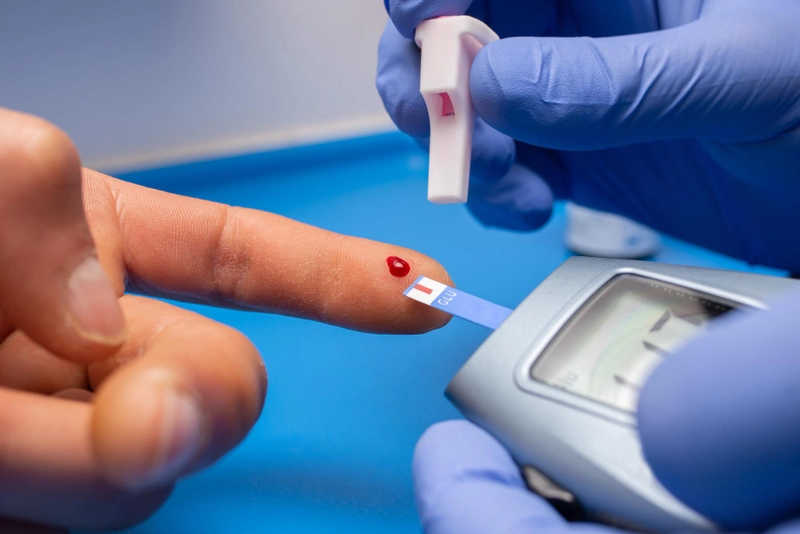- Published on: Mar 17, 2022
- 2 minute read
- By: Second Medic Expert
Insomnia: Symptoms, Causes, Diagnosis & Treatment
Symptoms of insomnia include difficulty falling asleep, frequent awakenings during the night, and early morning awakening. Insomnia can be caused by many factors including stress, anxiety, depression, medications, and medical conditions. Insomnia is a common problem that can be diagnosed and treated by a healthcare professional. Treatment options include cognitive-behavioral therapy (CBT), medications, and natural remedies such as melatonin or valerian. Symptoms of insomnia can include difficulty falling asleep, difficulty staying asleep, waking up frequently during the night, or feeling unrested after sleep.
Insomnia can be caused by several factors such as stress, anxiety, poor sleep habits, circadian rhythm disorders, and certain medical conditions. Insomnia is usually diagnosed based on a person's symptoms and medical history. Treatment for insomnia typically includes lifestyle changes such as developing better sleep habits and reducing stress levels, medications such as hypnotics and sedatives, and in some cases cognitive-behavioral therapy.
Symptoms of insomnia can vary but may include difficulty falling or staying asleep, frequent wakeups during the night, or feeling tired after waking up. There are many potential causes of insomnia, including medications, mental health problems, medical conditions, and lifestyle factors. Insomnia can be diagnosed through a sleep history and physical exam. Treatment typically involves identifying and addressing the cause of insomnia and may include behavioral therapies, medications, or a combination of both. Insomnia can be caused by many things, including stress, anxiety, medications, and health conditions.
If you're having trouble sleeping, it's important to see your doctor. He or she can help you determine the cause of your insomnia and recommend a treatment plan. Treatment options include cognitive-behavioral therapy (CBT), sleep medications, and lifestyle changes such as avoiding caffeine and exercise near bedtime. Insomnia is a sleep disorder that can make it hard to fall asleep, hard to stay asleep or cause you to wake up too early. Insomnia can also lead to daytime sleepiness.
There are many possible causes of insomnia, including medical problems, psychiatric problems, and lifestyle factors. Treatment for insomnia depends on the cause. If lifestyle factors are causing the insomnia, such as stress or caffeine use, changes in diet or behavior may help. If a medical problem is causing the insomnia, treating the problem may improve sleep. If a psychiatric problem is causing the insomnia, treatment may include counseling or medication.
Symptoms of insomnia can vary from person to person, but may include difficulty falling asleep, staying asleep, or getting restful sleep. Insomnia can also cause daytime fatigue, irritability, and a lack of focus. There are many potential causes of insomnia, including stress, anxiety, medications, and health conditions. A doctor can help diagnose the cause of your insomnia and recommend treatment options. Treatments for insomnia may include behavioral therapies, such as cognitive-behavioral therapy (CBT), medications, or a combination of both. Symptoms of insomnia can vary, but common symptoms include difficulty falling asleep, staying asleep, or getting restful sleep. Insomnia can also lead to daytime fatigue, decreased productivity, and mood changes. There are many potential causes of insomnia, such as stress, anxiety, medications, poor sleep habits, and health conditions. If you're experiencing insomnia symptoms on a regular basis, it's important to see a doctor for evaluation and treatment. Treatment for insomnia may include lifestyle changes (such as improving sleep hygiene), medications, or therapy.
Insomnia can cause a variety of symptoms, which can make it difficult to diagnose and treat. Some people with insomnia have difficulty falling asleep, while others wake up frequently during the night or have trouble returning to sleep after waking up. Still others experience daytime sleepiness and fatigue.
CAUSES OF INSOMNIA
There are many potential causes of insomnia, including:
- Stress or anxiety
- Pain from an illness or injury
- Reaction to medications
- Depression or other emotional problems
- Disruptive noises or light from your environment
-Too much caffeine or alcohol consumption
Symptoms of insomnia can include difficulty falling asleep, staying asleep, or getting a good night's rest. You may also have trouble focusing during the day and feel stressed or irritable. There are many potential causes of insomnia, including stress, anxiety, medications, caffeine, alcohol, and nicotine. Treatment options typically involve lifestyle changes such as improving your sleep hygiene habits and managing your stress levels, as well as cognitive-behavioral therapy or medication. Symptoms of insomnia can vary from person to person, but common symptoms include difficulty falling or staying asleep, waking up frequently during the night, and feeling exhausted the next day. There can be many causes of insomnia, including stress, anxiety, medications, substance abuse, and medical conditions such as heart disease and arthritis. Diagnosis of insomnia is usually based on a patient's symptoms and medical history. Treatment typically involves behavioral therapies such as cognitive-behavioral therapy (CBT) or relaxation techniques, along with medications if necessary.
Our Services
Request A Callback
Recent Posts
Lipid Profile Test – Normal Range and Risks
Jul 12,2025
How to Prevent Food Poisoning in Monsoon
Jul 10,2025










